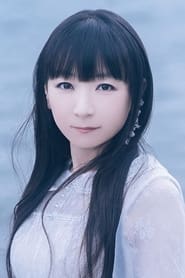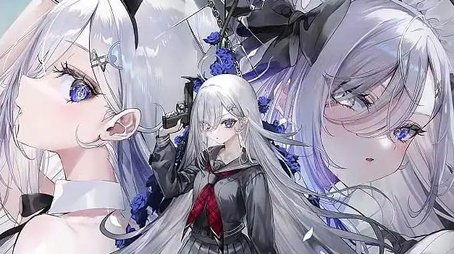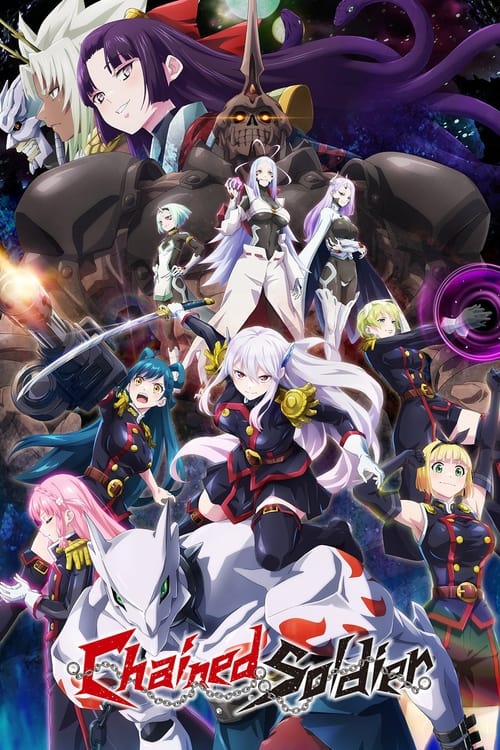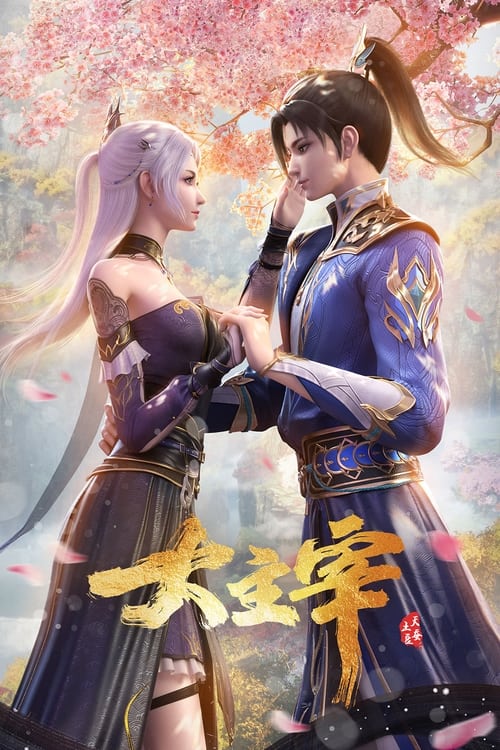
Ask Your Own Question
What is the plot?
The episode begins with Harima Kenji, who is feeling inspired to create a manga. He is determined to impress Tenma Tsukamoto, the girl he has a crush on. Harima spends time sketching and brainstorming ideas for his manga, which he hopes will showcase his artistic talent and win Tenma's admiration. He is filled with excitement and a sense of purpose as he works on his project.
As Harima continues to develop his manga, he becomes increasingly absorbed in the story he is creating. He envisions a dramatic plot filled with emotional turmoil and intense character interactions. However, his enthusiasm is met with challenges as he struggles to translate his ideas onto paper. The pressure to create something impressive weighs heavily on him, leading to moments of frustration and self-doubt.
Meanwhile, Tenma is unaware of Harima's efforts and is preoccupied with her own issues. She is dealing with her feelings for Karasuma, which complicates her interactions with Harima. Tenma's internal conflict is evident as she navigates her emotions, torn between her affection for Karasuma and her friendship with Harima. This adds a layer of complexity to the relationships among the characters.
As the story progresses, Harima decides to share his manga with his classmates. He gathers a group of friends, including Eri Sawachika and Yakumo Tsukamoto, to present his work. The atmosphere is filled with anticipation as Harima reveals his manga, hoping for positive feedback. However, the reaction from his peers is not what he expected. They find the content of his manga to be overly dramatic and somewhat ridiculous, leading to a series of comedic misunderstandings.
In a parallel storyline, Yakumo is dealing with her own challenges. She is portrayed as a caring older sister to Tenma, but she also has her own insecurities. Yakumo's character is explored as she grapples with her feelings of inadequacy and the pressure to support her sister. This subplot adds depth to her character and highlights the theme of sibling relationships.
As the episode unfolds, Harima's manga takes a turn for the worse. The plot becomes increasingly convoluted, leading to a series of tragic events that are both humorous and exaggerated. The characters in the manga experience melodramatic situations, which mirror the chaos of Harima's own life. This blurring of reality and fiction creates a comedic effect, showcasing Harima's struggles as a budding manga artist.
The climax of the episode occurs when Harima's manga is met with ridicule from his classmates. They mock the over-the-top elements of the story, leading to Harima feeling defeated and embarrassed. This moment is pivotal as it forces Harima to confront his insecurities and question his abilities as a creator. The emotional weight of this scene is palpable, as Harima's dreams seem to crumble before him.
In the final scenes, Harima reflects on the experience and the feedback he received. Despite the harsh criticism, he realizes that creating manga is a journey filled with ups and downs. The episode concludes with Harima vowing to continue pursuing his passion, determined to improve and find his unique voice as an artist. The emotional resolution leaves viewers with a sense of hope for Harima's future endeavors, even amidst the comedic chaos of the episode.
What is the ending?
In the ending of "Manga Tragedy! Older Sister Tragedy! The Big Mr. Kappa Tragedy!", the episode culminates in a series of misunderstandings and comedic mishaps. Harima's manga, which he has been working on, is revealed to be a source of tension as he struggles with his feelings for Tenma. Meanwhile, Tenma's older sister, Yakumo, finds herself caught in the chaos of the misunderstandings surrounding Harima's work. The episode concludes with a humorous twist, leaving the characters in their usual state of confusion and unresolved feelings.
As the episode unfolds, we begin with Harima, who is deeply engrossed in creating his manga. His passion is palpable, and he is determined to impress Tenma with his work. However, his manga takes a turn for the dramatic, reflecting his own insecurities and feelings of inadequacy. The scenes are filled with exaggerated expressions and comedic timing, showcasing Harima's internal struggle as he tries to balance his artistic ambitions with his feelings for Tenma.
Meanwhile, Tenma is blissfully unaware of the turmoil surrounding her. She is excited about her older sister Yakumo's visit, hoping to spend quality time with her. Yakumo, on the other hand, is more reserved and feels the weight of her responsibilities as an older sister. Her character is portrayed with a sense of maturity, contrasting with Tenma's more carefree nature. As the two sisters interact, there is a blend of warmth and tension, highlighting their differing personalities.
As the episode progresses, misunderstandings arise when Harima's manga is mistakenly interpreted by Tenma and Yakumo. They believe it to be a reflection of Harima's true feelings, leading to a series of comedic yet poignant moments. Harima's attempts to clarify his intentions only add to the confusion, as he becomes increasingly flustered. The visual gags and exaggerated reactions of the characters amplify the comedic effect, making the audience empathize with Harima's plight.
In a pivotal scene, Harima finally confronts Tenma and Yakumo, hoping to clear the air. However, his nervousness leads to a comedic disaster, where he accidentally reveals more than he intended. The tension reaches a peak as the sisters react in shock, and Harima's embarrassment is palpable. This moment encapsulates the essence of the series, where romantic feelings are often tangled in misunderstandings and comedic situations.
As the episode draws to a close, the characters are left in a state of unresolved emotions. Harima, despite his efforts, finds himself back at square one with Tenma, who remains oblivious to his true feelings. Yakumo, while supportive of her sister, is also caught in the chaos, reflecting on her own feelings of responsibility and the complexities of sibling relationships. The episode ends on a humorous note, with the characters returning to their usual antics, leaving the audience with a sense of familiarity and anticipation for future developments.
In summary, the ending of this episode encapsulates the ongoing themes of love, misunderstanding, and the comedic trials of adolescence, leaving the characters in their typical state of confusion and unresolved feelings, ready for the next chapter in their lives.
Is there a post-credit scene?
In the episode "Manga Tragedy! Older Sister Tragedy! The Big Mr. Kappa Tragedy!" of School Rumble, there is indeed a post-credit scene. This brief segment features a humorous interaction that encapsulates the show's comedic tone.
In the scene, we see Harima, the main character, in a moment of frustration as he grapples with his feelings for Tenma. He is depicted in a classic manga-style pose, complete with exaggerated expressions that highlight his inner turmoil. As he contemplates his unrequited love, he is suddenly interrupted by a comical appearance of a kappa, a mythical creature from Japanese folklore. The kappa, with its green skin and mischievous demeanor, adds a layer of absurdity to the moment.
The kappa engages in a playful banter with Harima, teasing him about his romantic woes. Harima, caught off guard, reacts with a mix of annoyance and disbelief, showcasing his characteristic blend of seriousness and comedic frustration. The scene ends on a light-hearted note, leaving viewers with a chuckle and a reminder of the show's whimsical nature.
This post-credit moment serves to reinforce the series' blend of romantic tension and humor, providing a fitting conclusion to an episode filled with various emotional and comedic tragedies.
What happens to Tenma when she tries to create a manga for the contest?
In this episode, Tenma decides to enter a manga contest, inspired by her love for manga and her desire to impress others. However, as she begins to draw, she struggles with her artistic skills and the pressure of creating a compelling story. Her initial excitement turns into frustration as she faces the reality of her limitations, leading to a series of comedic yet tragic moments as she tries to depict her feelings and experiences.
How does Karasuma react to Tenma's manga?
Karasuma, who is often portrayed as aloof and detached, surprisingly shows interest in Tenma's manga. When he reads it, he is touched by her earnestness and the emotions she tries to convey. This reaction highlights a moment of connection between them, showcasing Karasuma's deeper understanding of Tenma's feelings, even if he doesn't express it overtly.
What role does the character of Mr. Kappa play in Tenma's manga?
Mr. Kappa is a fictional character that Tenma creates for her manga. He represents a comedic and exaggerated version of a traditional Japanese folklore creature. In her story, Mr. Kappa becomes a symbol of the struggles and challenges Tenma faces, embodying her fears and insecurities. His antics provide both humor and a deeper commentary on Tenma's emotional state.
How does the episode explore the relationship between Tenma and her older sister?
The episode delves into the dynamic between Tenma and her older sister, who is portrayed as more mature and successful. Tenma feels overshadowed by her sister's accomplishments, which adds to her insecurities as she attempts to create her manga. This sibling rivalry is depicted through their interactions, where Tenma's desire for approval and recognition becomes evident, leading to moments of both tension and understanding.
What comedic elements are present in the depiction of Tenma's manga creation process?
The episode is filled with comedic elements as Tenma's manga creation process is fraught with exaggerated mishaps and misunderstandings. From her disastrous attempts at drawing to the over-the-top reactions of her classmates when they read her work, the humor is amplified by the absurdity of the situations. These comedic moments serve to lighten the emotional weight of her struggles, making her journey relatable and entertaining.
Is this family friendly?
In "Manga Tragedy! Older Sister Tragedy! The Big Mr. Kappa Tragedy!" from School Rumble, there are a few elements that may be considered objectionable or upsetting for children or sensitive viewers:
-
Romantic Tension: The episode features themes of unrequited love and jealousy, which may be confusing for younger viewers.
-
Physical Comedy: There are instances of slapstick humor that involve characters getting hurt or embarrassed, which might be distressing for some.
-
Emotional Distress: Characters experience feelings of sadness and frustration, particularly related to relationships and misunderstandings, which could resonate negatively with sensitive viewers.
-
Manga References: The episode includes references to manga tropes that may not be fully understood by younger audiences, potentially leading to confusion.
Overall, while the show maintains a comedic tone, these elements could be seen as potentially upsetting depending on the viewer's sensitivity to emotional and physical humor.


















